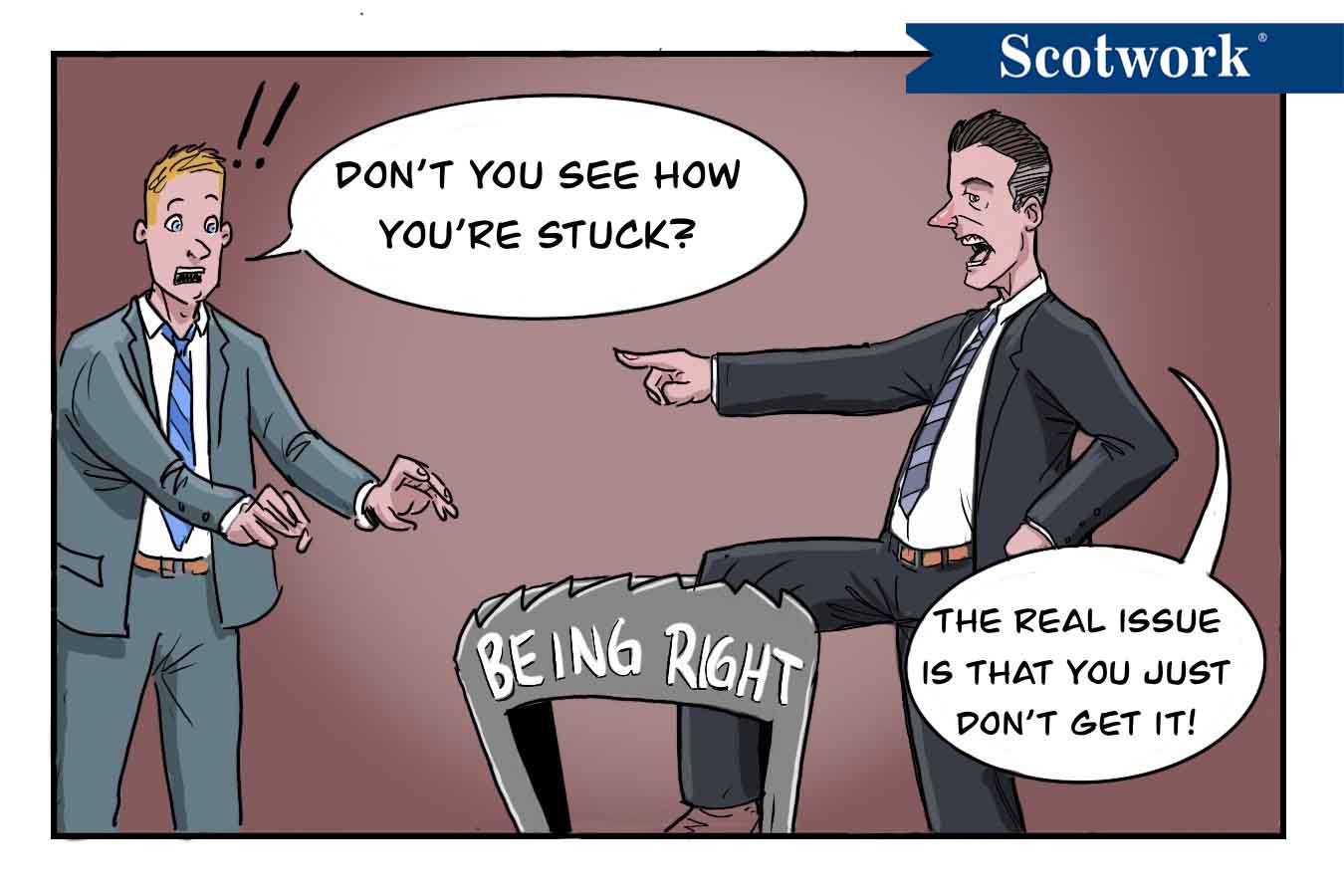In the heat of a negotiation, it’s easy to slip into the trap of trying to be right. We believe our argument is solid. We’ve done the homework. We’re sure the other side just doesn’t get it. So, we double down, we repeat ourselves, we clarify, we reinforce. Yet we don’t move forward.
I’ve fallen into this trap more times than I’d like to admit. It often starts with a perfectly reasonable point. When I get pushback — especially when it’s not grounded in logic — I go into “defense mode.” I keep trying to win the argument. The more resistance I feel, the more I lean into “being right.”
But here’s what I’ve learned: The moment I start trying to be right, I stop trying to understand. And when I stop trying to understand, everything slows down. Progress stalls, emotions rise, the deal gets shaky.
A few years ago, I was helping an owner of a company negotiate the sale of his business. The purchasing company wanted to do an earn-out (purchase the company over time). This type of purchase typically involves a carve-out that’s negotiated to protect the seller’s earn-out potential.
In this case, the owner was in the midst of a significant growth plan and made several investments that included new buildings and machinery, some of which he was going to pay for over time. The purchaser’s initial offer didn’t include a carve-out for those investments and, therefore, decreased the earn-out potential dramatically.
The owner felt he had a strong argument for why those investments should be excluded. Several meetings later, there was no movement. Every time the topic came up, the discussion became more of a fight. It started to look like the deal was going to fall apart.
We took a step back. I asked the owner if he knew why they wouldn’t agree to the carve-out. He reported that they simply refused. I pushed him to find out why.
When he switched from trying to be right to seeking to understand, he discovered that their resistance was about corporate governance. They followed a model that doesn’t exclude those types of investments. Encouraged, he probed further and discovered that they were open to offsetting those investments in other ways, which could help him realize the earn-out potential he wanted.
All that time spent trying to be right could’ve been spent understanding. Once he understood the constraint, they found other levers to rebalance the deal. Agreement followed quickly, but it could’ve come much sooner.
In my experience, there are 3 helpful steps to getting out of the “right” trap . . .
Recognize the Trap
So, how do you know when you’ve moved from persuading to proving? The signs are subtle but familiar:
- You keep restating your point in different ways, but nothing changes.
- You find yourself thinking, “Why aren’t they getting this?”
- You feel stuck. So do they.
These are signs that it’s time to shift — not to surrender your position, but to understand theirs.
Make the Shift
Ask questions — not to poke holes in their logic, but to genuinely understand their perspective. What’s influencing their stance? What do they need to make this work? What risks are they seeing that you don’t?
This doesn’t mean giving up your agenda. It means opening the conversation so you can discover the real issues. Oftentimes, the real constraint isn’t what you’re arguing about, but rather something underneath: internal politics, budget cycles, personal incentives, or simply a different mental model. But you won’t learn what it is by pressing your case harder. You’ll find it only by pausing to listen and explore.
Bring Light, Not Heat
Negotiation isn’t a courtroom. It’s not about winning an argument. It’s about finding a deal that both parties can support. When we prioritize understanding over being right, we turn down the heat and bring in some light. We create space for empathy, creativity, and movement.
The next time you’re digging in, ask yourself this: “Am I trying to win this point, or am I trying to move this deal forward?” If it’s the former, take a breath, shift gears, get curious, and seek to understand.
Getting the deal should be more important than being right.
Are You Trying to Be Right, Or Are You Trying to Get the Deal Done?
Scotwork’s negotiation training or consulting can help you avoid the “right” trap and get the right deal. Trust our 50 years of experience to help you avoid toxic negotiations.

